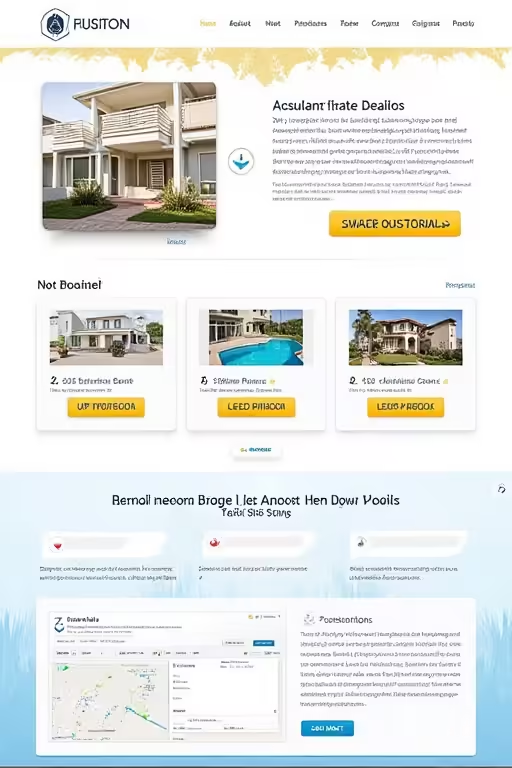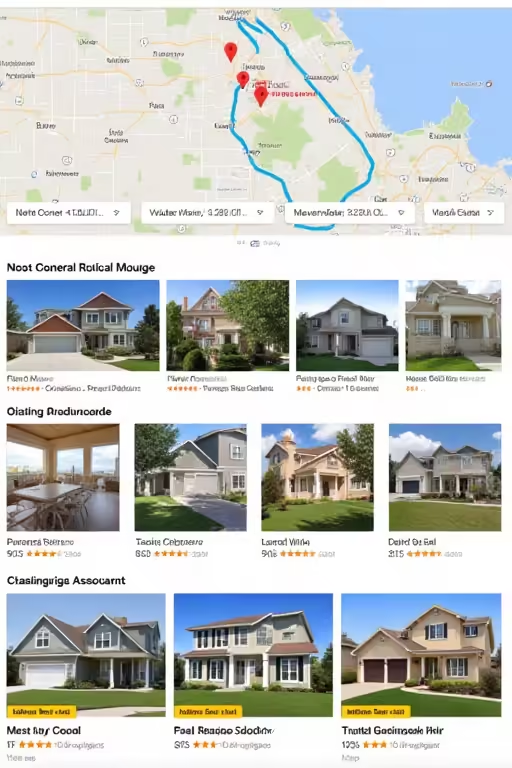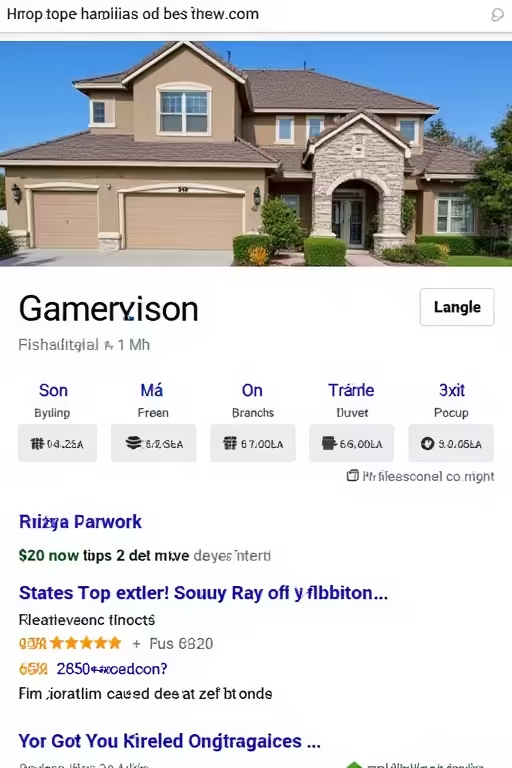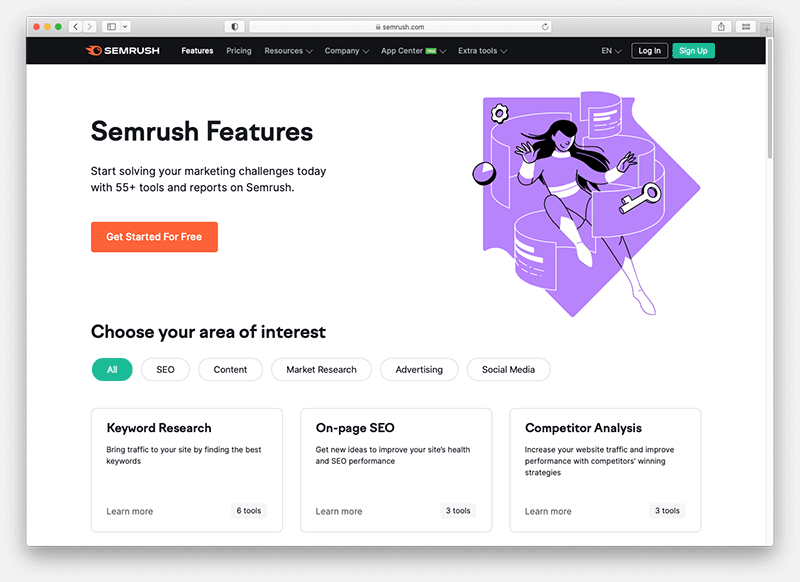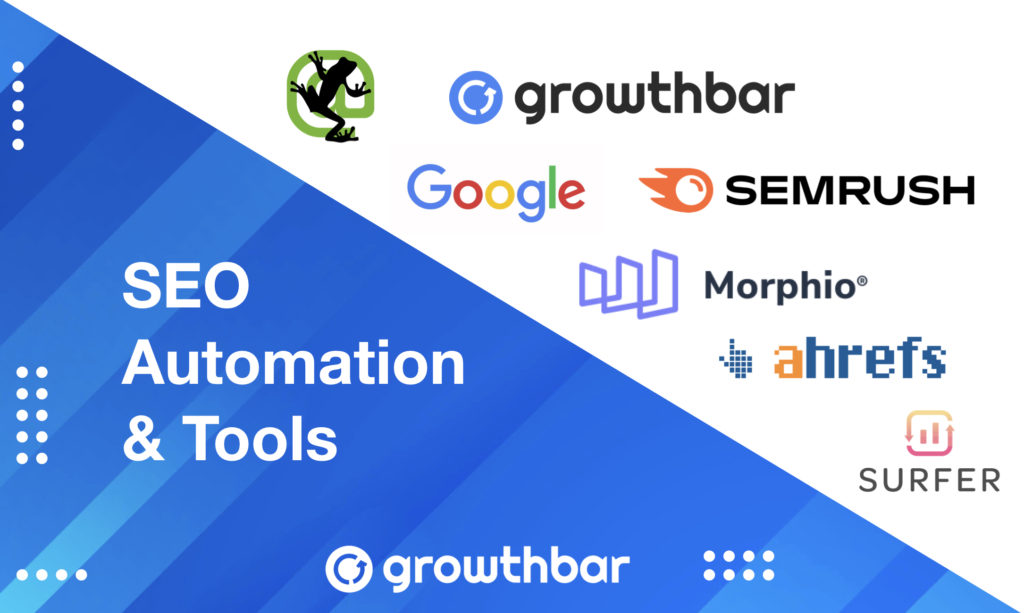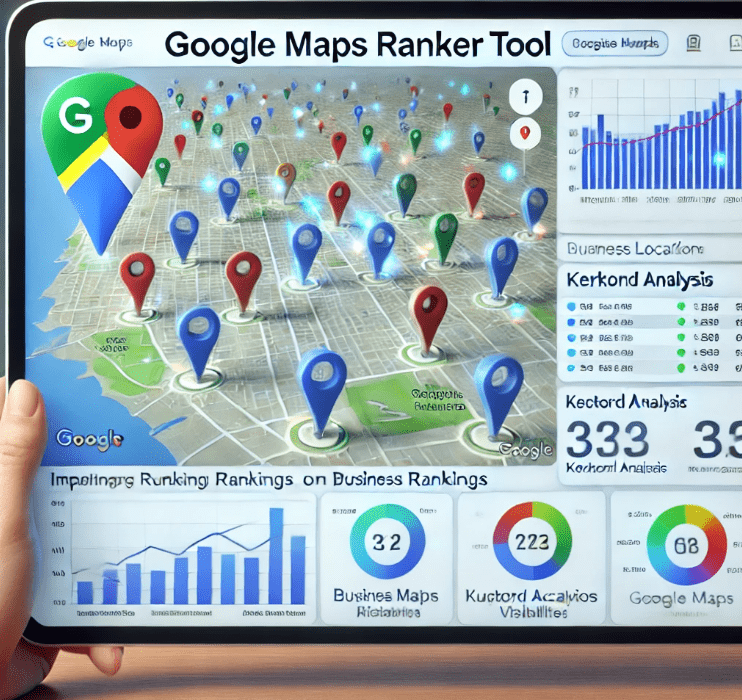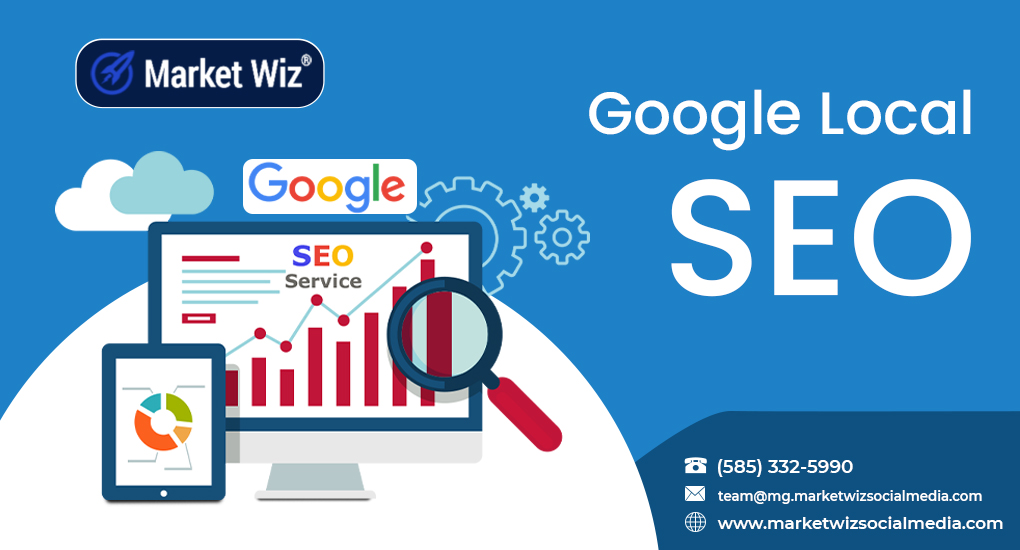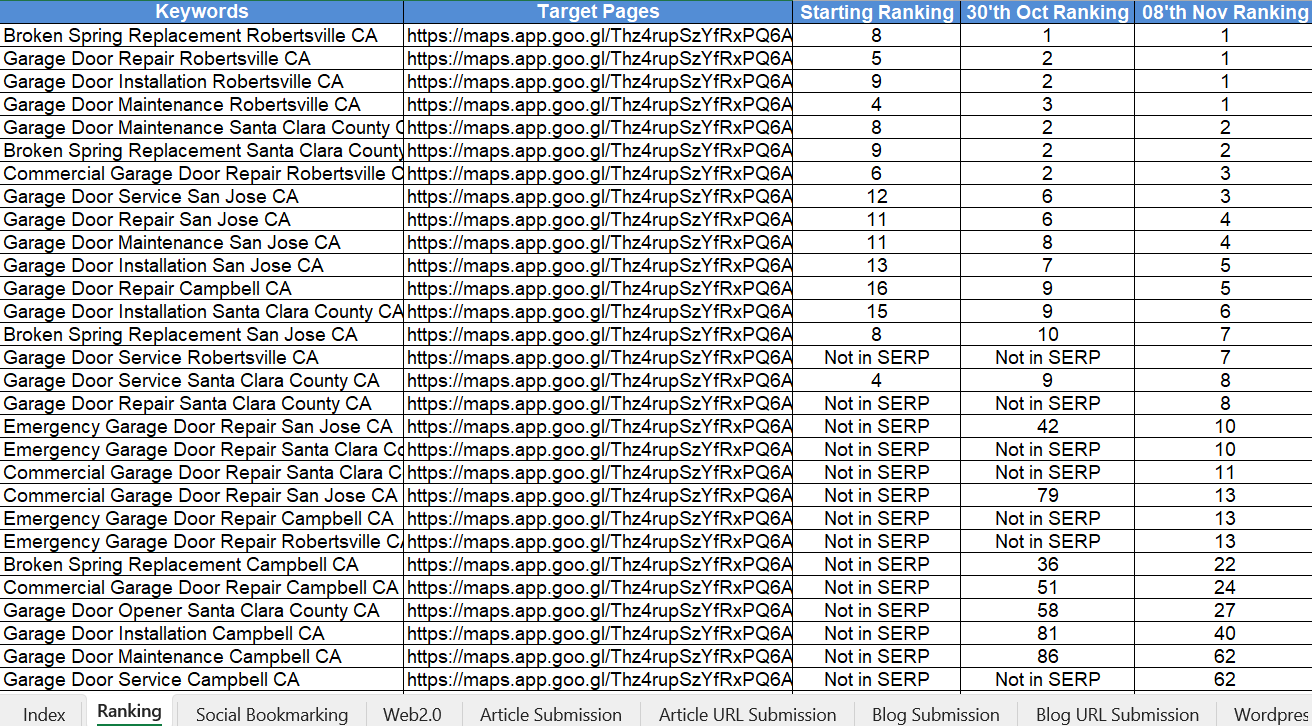Local SEO for Real Estate Agents: Elevate Your Real Estate Business
Local SEO for Real Estate Agents
Unlock the full potential of your real estate business with strategic local SEO tailored just for you.

In today's digital landscape, the real estate market is more competitive than ever. To stand out, real estate agents must leverage effective online strategies that attract local clients actively seeking properties and services. Local SEO for real estate agents is a powerful tool that can significantly enhance your online visibility, drive targeted traffic to your website, and ultimately, increase your client base.
This comprehensive guide explores the essentials of local SEO, why it's crucial for real estate professionals, and actionable strategies you can implement to dominate your local market.
Get Started TodayWhat is Local SEO?
Local SEO (Search Engine Optimization) is the process of optimizing your online presence to attract more business from relevant local searches. These searches take place on Google and other search engines. For real estate agents, local SEO means making sure that when someone searches for properties or real estate services in your area, your business appears prominently in the search results.
Local SEO encompasses various strategies, including optimizing your website for local keywords, managing your Google My Business listing, acquiring local citations, and garnering positive reviews. These efforts collectively enhance your visibility in local search results, making it easier for potential clients to find and engage with you.

Why Local SEO is Important for Real Estate Agents
As a real estate agent, your success hinges on your ability to connect with clients who are actively seeking properties or real estate services. Traditional marketing methods, while still valuable, may not provide the targeted reach that digital strategies offer. Local SEO for real estate agents bridges this gap by ensuring that your business is visible to the right audience at the right time.
When potential clients search for "homes for sale near me" or "best real estate agents in [Your City]," you want your name to appear at the top of the search results. This visibility not only increases your chances of attracting inquiries but also establishes your credibility in the local market.

Key Components of Local SEO for Real Estate Agents
Implementing local SEO involves several strategic components. Each plays a crucial role in enhancing your online presence and attracting local clients.
1. Google My Business Optimization
Your Google My Business (GMB) listing is a cornerstone of local SEO. Optimizing your GMB profile ensures that your business information is accurate and prominently displayed in local search results and Google Maps.
- Accurate Information: Ensure your business name, address, phone number (NAP), and operating hours are correct.
- Categories: Select relevant categories that accurately describe your services.
- Photos: Upload high-quality images of your properties, office, and team to make your listing more appealing.
- Posts: Regularly update your GMB with posts about new listings, open houses, and other relevant updates.
2. Managing Google Reviews
Positive reviews on Google can significantly impact your local SEO and reputation. Encourage satisfied clients to leave reviews, and respond to all reviews promptly and professionally.
- Soliciting Reviews: After closing a deal, ask clients to share their experiences on your Google My Business listing.
- Responding to Reviews: Thank clients for positive feedback and address any negative reviews constructively.
- Consistent Monitoring: Regularly monitor your reviews to maintain a high rating and address issues swiftly.
3. Google Maps SEO Services
Optimizing for Google Maps ensures that your real estate business appears prominently when users search for services near them. This involves refining your GMB listing and ensuring consistency across all local directories.
- Location Keywords: Incorporate local keywords in your website content and GMB profile to align with user searches.
- Local Citations: Ensure your business information is consistent across all online directories and platforms.
- Engagement: Actively engage with users on Google Maps by responding to queries and participating in local discussions.
4. On-Page SEO for Real Estate Websites
Optimizing your website's on-page elements ensures that search engines understand your content and rank it appropriately for local searches.
- Title Tags and Meta Descriptions: Include local keywords to improve relevance in search results.
- Header Tags: Use header tags (H1, H2, H3) to structure your content and highlight important information.
- Local Content: Create content that addresses local market trends, neighborhood guides, and other region-specific topics.
- Mobile Optimization: Ensure your website is mobile-friendly, as a significant portion of local searches occur on mobile devices.
5. Local Citations and Backlinks
Building local citations and acquiring high-quality backlinks from reputable local websites enhance your website's authority and trustworthiness.
- Consistent NAP: Ensure your business name, address, and phone number are consistent across all citations.
- Quality Backlinks: Obtain backlinks from local real estate directories, community websites, and industry-related blogs.
- Local Partnerships: Collaborate with local businesses and organizations to generate relevant backlinks.
6. Content Marketing for Local SEO
Creating valuable, locally relevant content helps establish your authority in the real estate market and attracts organic traffic.
- Blog Posts: Write about local market trends, property investment tips, and neighborhood spotlights.
- Property Listings: Optimize property listings with detailed descriptions, local keywords, and high-quality images.
- Video Content: Create virtual tours, client testimonials, and community event coverage to engage your audience.
- Infographics: Develop visually appealing infographics that present local real estate data and insights.

How to Implement Local SEO for Real Estate Agents
Implementing local SEO effectively requires a strategic approach. Here are actionable steps you can take to optimize your real estate business for local searches:
Step 1: Optimize Your Google My Business Listing
Start by claiming and verifying your Google My Business (GMB) listing. Fill out all relevant information accurately, including your business name, address, phone number, and operating hours. Add high-quality images and regularly update your listing with posts about new listings, open houses, and market updates.
Step 2: Conduct Local Keyword Research
Identify the keywords your potential clients are using to search for real estate services in your area. Tools like Google Keyword Planner, SEMrush, and Ahrefs can help you discover relevant local keywords. Incorporate these keywords naturally into your website content, meta tags, and GMB profile.
Step 3: Build Consistent Local Citations
Ensure your business information is consistent across all online directories and platforms. Submit your real estate business to local directories, industry-specific sites, and community websites. Consistent NAP (Name, Address, Phone Number) information is crucial for improving your local search rankings.
Step 4: Encourage and Manage Client Reviews
Positive reviews can significantly impact your local SEO and reputation. Encourage satisfied clients to leave reviews on your GMB listing and other review platforms. Respond to all reviews, thanking clients for positive feedback and addressing any concerns raised in negative reviews professionally.
Step 5: Create Locally Relevant Content
Develop content that resonates with your local audience. This includes blog posts about local market trends, guides to different neighborhoods, property investment tips, and community event coverage. High-quality, informative content attracts organic traffic and establishes your authority in the local real estate market.
Step 6: Optimize Your Website for Mobile
Ensure your website is mobile-friendly, as many local searches are conducted on mobile devices. A responsive design improves user experience, reduces bounce rates, and positively impacts your search engine rankings.
Step 7: Utilize Local Backlinks
Acquire backlinks from reputable local websites, such as community organizations, local news outlets, and industry-specific blogs. These backlinks enhance your website's authority and improve your local SEO performance.
Step 8: Monitor and Analyze Your SEO Performance
Use tools like Google Analytics and Google Search Console to track your website's performance. Monitor key metrics such as organic traffic, keyword rankings, and conversion rates. Analyzing this data helps you understand what's working and where adjustments are needed to optimize your local SEO strategy further.

Benefits of Local SEO for Real Estate Agents
Investing in local SEO offers numerous benefits that can significantly impact your real estate business:
1. Higher Search Engine Rankings
Effective local SEO strategies improve your website's ranking in local search results. Higher rankings mean greater visibility, leading to increased website traffic and more inquiries from potential clients.
2. Increased Web Traffic
By optimizing your website and online profiles for local searches, you attract more targeted traffic. This influx of visitors increases the likelihood of generating quality leads that can convert into clients.
3. Enhanced Credibility and Trust
A strong online presence with positive reviews and high search rankings builds credibility and trust among potential clients. Clients are more likely to engage with real estate agents they perceive as reputable and authoritative.
4. Better User Experience
Local SEO involves optimizing your website for both search engines and users. A well-structured, mobile-friendly website provides a seamless user experience, encouraging visitors to explore your listings and services further.
5. Cost-Effective Marketing
Compared to traditional advertising methods, local SEO offers a higher return on investment. It targets users who are actively searching for real estate services, making your marketing efforts more efficient and effective.

Common Mistakes to Avoid in Local SEO
While local SEO offers numerous benefits, there are common pitfalls that real estate agents should avoid to ensure the effectiveness of their strategies:
1. Inconsistent NAP Information
Having inconsistent Name, Address, and Phone Number (NAP) information across different platforms can confuse search engines and potential clients. Ensure that your NAP details are consistent across your website, Google My Business, and all local directories.
2. Neglecting Mobile Optimization
With a significant number of local searches conducted on mobile devices, neglecting mobile optimization can hinder your SEO performance. Ensure that your website is responsive and provides a seamless user experience on all devices.
3. Ignoring Google My Business Updates
Your Google My Business listing should be regularly updated with new information, photos, and posts. Ignoring updates can lead to outdated information, reducing your listing's effectiveness in local search results.
4. Focusing Solely on Keywords
While keyword optimization is important, focusing solely on keywords can result in keyword stuffing and poor content quality. Prioritize creating valuable, informative content that addresses the needs and interests of your local audience.
5. Overlooking Online Reviews
Online reviews play a crucial role in local SEO and client trust. Neglecting to manage and respond to reviews can negatively impact your online reputation and search rankings.
6. Not Tracking SEO Performance
Failing to monitor and analyze your SEO performance can prevent you from understanding what's working and what's not. Use analytics tools to track key metrics and make data-driven decisions to optimize your strategies.

Frequently Asked Questions
1. What is local SEO for real estate agents?
Local SEO for real estate agents involves optimizing your online presence to attract more local clients. This includes improving your website's visibility in local search results, optimizing your Google My Business listing, managing online reviews, and building local citations. The goal is to ensure that when potential clients search for real estate services in your area, your business appears prominently.
2. How can local SEO benefit my real estate business?
Local SEO can significantly benefit your real estate business by increasing your online visibility in local search results, attracting more qualified leads, and enhancing your credibility through positive reviews and high search rankings. This leads to more inquiries, higher client engagement, and ultimately, increased sales and commissions.
3. What are Google reviews for real estate agents and why are they important?
Google reviews are feedback and ratings left by clients on your Google My Business listing. They are crucial for real estate agents because they build trust and credibility with potential clients. Positive reviews can enhance your online reputation, improve your local search rankings, and influence prospective clients' decisions when choosing a real estate agent.
4. How does Google Maps SEO services help real estate agents?
Google Maps SEO services optimize your Google My Business listing and improve your visibility in Google Maps search results. For real estate agents, this means that when potential clients search for real estate services in your area, your business appears prominently on the map, making it easier for clients to find and contact you.
5. What makes Market Wiz a real estate SEO expert?
Market Wiz is a real estate SEO expert because of our deep understanding of the real estate industry, our specialized SEO strategies tailored for real estate agents, and our proven track record of helping real estate professionals enhance their online presence. Our team stays updated with the latest SEO trends and continuously adapts our strategies to meet the unique needs of the real estate market.
6. How can an SEO consultant improve my real estate branding on Google?
An SEO consultant can improve your real estate branding on Google by optimizing your website and Google My Business listing, managing and generating positive reviews, creating locally relevant content, and building high-quality backlinks. These efforts enhance your online reputation, increase your visibility in search results, and establish your brand as a trusted authority in the real estate market.
7. What are local citations and why are they important for real estate agents?
Local citations are online mentions of your business's name, address, and phone number (NAP) on various websites and directories. They are important for real estate agents because they help improve your local search rankings and enhance your online credibility. Consistent and accurate citations across reputable platforms signal to search engines that your business is legitimate and relevant to local searches.
8. How long does it take to see results from local SEO for real estate agents?
While some SEO strategies like pay-per-click (PPC) advertising can yield immediate results, local SEO typically takes between 3 to 6 months to show significant improvements in search rankings and website traffic. The timeline can vary based on factors such as the competitiveness of your local market, the current state of your online presence, and the specific strategies implemented.
9. Can Market Wiz help me manage my Google reviews?
Yes, Market Wiz offers services to manage and enhance your Google reviews. We help you generate more positive reviews from satisfied clients, respond to existing reviews professionally, and implement strategies to maintain a high rating. Managing your reviews effectively can boost your online reputation and improve your local SEO performance.
10. What is the cost of local SEO services for real estate agents?
The cost of local SEO services for real estate agents varies based on the specific needs and goals of your business. Market Wiz offers customized pricing packages tailored to your budget and requirements. To get an accurate quote, contact us for a personalized consultation where we can discuss your objectives and provide a detailed proposal.
11. How can I get started with Market Wiz's local SEO services?
Getting started is easy! Simply contact us to schedule a consultation. We'll discuss your real estate business goals, assess your current online presence, and develop a customized local SEO strategy to help you achieve your objectives.
12. Do you offer ongoing support and maintenance for local SEO?
Yes, Market Wiz provides ongoing support and maintenance for local SEO. We continuously monitor your SEO performance, make necessary adjustments, and keep your strategies up-to-date with the latest SEO trends and algorithm changes. Our goal is to ensure your real estate business maintains high search rankings and continues to attract new clients.
13. How does content marketing integrate with local SEO for real estate agents?
Content marketing plays a vital role in local SEO for real estate agents by providing valuable, relevant information to your target audience. By creating blog posts, property listings, and other content optimized with local keywords, you can attract more visitors to your website and establish your authority in the local market. Quality content also encourages engagement and shares, further boosting your SEO efforts.
14. Can Market Wiz help improve my website's user experience?
Absolutely! We offer web design and development services focused on enhancing user experience (UX) for real estate agents. A user-friendly website not only improves client satisfaction but also boosts your SEO rankings. Our team ensures that your website is intuitive, visually appealing, and optimized for both desktop and mobile users, with fast loading times and clear calls-to-action to guide visitors towards conversion.
15. What industries does Market Wiz specialize in within Clarksburg?
While our expertise spans various industries, Market Wiz specializes in providing digital marketing and SEO services tailored for the real estate sector in Clarksburg, West Virginia. Our understanding of the local real estate market allows us to create effective strategies that drive results for real estate agents and agencies.
16. How does Market Wiz stay updated with the latest SEO trends?
Our team is committed to continuous learning and professional development. We regularly attend industry conferences, participate in webinars, and follow leading marketing publications to stay ahead of the curve. Additionally, we engage in ongoing training and collaborate with other SEO experts to ensure that our strategies are always aligned with the latest best practices and technological advancements.
17. Can Market Wiz help with multilingual SEO for real estate agents?
Yes, Market Wiz offers multilingual SEO services to help real estate agents reach a broader audience. Whether you're targeting clients who speak different languages or operating in diverse communities, we can optimize your website and content to cater to various linguistic demographics, enhancing your reach and engagement.
18. What reporting and analytics does Market Wiz provide?
Market Wiz provides comprehensive reporting and analytics to track the performance of your local SEO campaigns. We offer detailed reports on key metrics such as website traffic, keyword rankings, lead generation, and conversion rates. These insights allow you to understand the impact of our efforts and make informed decisions to further optimize your marketing strategies.
Ready to Boost Your Real Estate Business with Local SEO?
Don’t miss the opportunity to enhance your real estate business with our expert local SEO for real estate agents. Whether you aim to improve your online presence, generate more leads, or close more deals, Market Wiz has the expertise to help you achieve your objectives.
Our team is passionate about driving success for real estate agents through strategic SEO and digital marketing efforts. Let’s work together to craft a strategy that delivers real results. From optimizing your SEO performance to managing your Google reviews, we’re here to support every facet of your digital marketing needs.
Contact Us TodayLocal SEO for Real Estate Agents: Elevate Your Real Estate Business Read More »





